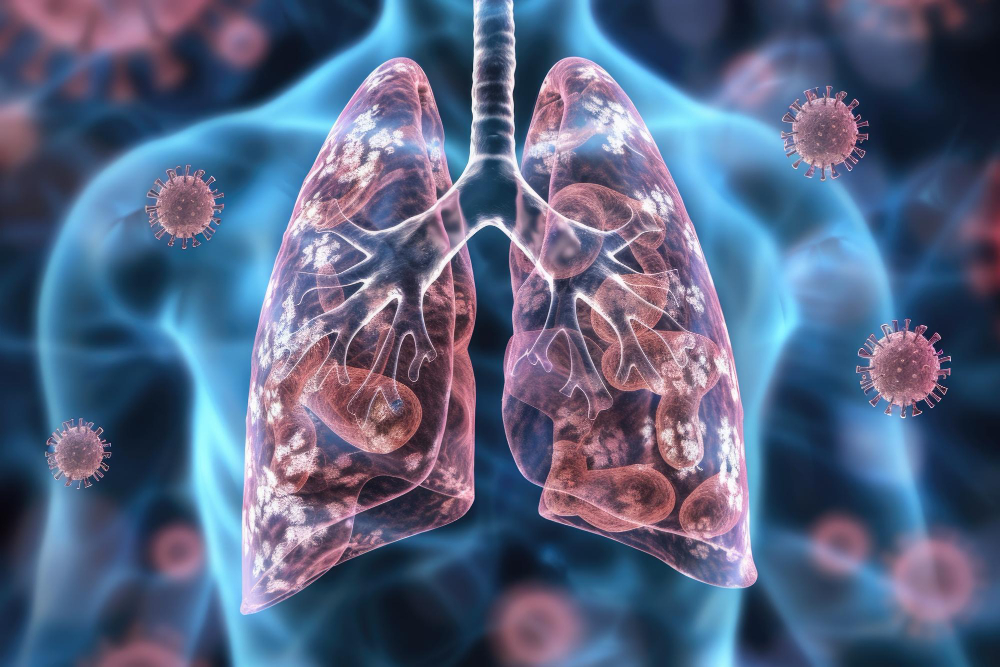Introduction
Lung cancer is one of the most prevalent and deadly cancers worldwide, and Sudan is no exception to this grim statistic. The country faces a rising number of lung cancer cases due to various factors, such as increasing smoking rates, air pollution, and occupational hazards. However, the challenges posed by limited healthcare infrastructure exacerbate the situation, making timely diagnosis and effective treatment difficult to achieve. This blog provides an in-depth look at the treatment options available for lung cancer in Sudan, including both traditional and cutting-edge therapies.
Overview of Lung Cancer in Sudan
In Sudan, lung cancer is primarily driven by the growing number of smokers, particularly among younger populations. In addition to smoking, contributing factors include exposure to hazardous air pollutants, occupational risks (such as asbestos), and secondhand smoke. Unfortunately, most lung cancer cases in Sudan are diagnosed at advanced stages, leading to reduced chances of survival. Despite these challenges, advancements in medical care, supported by international collaborations, are improving lung cancer treatment and outcomes.
Types of Lung Cancer
Lung cancer is classified into two main types:
- Non-Small Cell Lung Cancer (NSCLC): This is the most common type of lung cancer and grows more slowly compared to other forms.
- Small Cell Lung Cancer (SCLC): Less common but far more aggressive, SCLC tends to spread quickly to other parts of the body.
Treatment options depend on the type, stage of cancer, and overall health of the patient. Early diagnosis and personalized treatment plans are critical for better outcomes.
Treatment Options for Lung Cancer
1. Surgery
Surgery is a primary treatment for early-stage lung cancer, particularly for patients with NSCLC. Surgical options include:
- Lobectomy: Removal of one lobe of the lung.
- Pneumonectomy: Removal of the entire lung in cases of more extensive cancer spread.
In Sudan, major hospitals in Khartoum and Omdurman offer cancer surgeries, though access to experienced surgeons and advanced surgical tools is often limited, particularly in rural areas. Patients from distant regions frequently need to travel to urban centers to undergo these procedures, which can delay timely intervention.
2. Radiation Therapy
Radiation therapy uses high-energy rays to target and kill cancer cells. It is often used in conjunction with surgery or chemotherapy, particularly in cases where the cancer cannot be fully removed through surgery. Radiation therapy can also shrink tumors before surgery or alleviate symptoms in advanced cases.
Sudan offers radiation therapy in some specialized hospitals, but the availability is concentrated in urban centers, making it difficult for rural patients to access these services. Additionally, long waiting times for radiation therapy due to limited infrastructure can delay treatment, affecting patient outcomes.
3. Chemotherapy
Chemotherapy is widely used to treat both NSCLC and SCLC. It involves administering drugs that target rapidly dividing cancer cells. In Sudan, chemotherapy is available in most major hospitals and cancer centers, though access to the latest chemotherapy drugs may be limited due to financial constraints and supply issues.
Chemotherapy can be used alone or in combination with surgery or radiation therapy. While it is effective, chemotherapy can have significant side effects, such as nausea, fatigue, and hair loss, which impact patients’ quality of life.
4. Targeted Therapy
Targeted therapy is an advanced treatment that focuses on specific genetic mutations within cancer cells. For instance, drugs targeting the EGFR (epidermal growth factor receptor) mutation have proven effective in treating certain types of NSCLC. However, the availability of these therapies in Sudan is limited, and patients may need to travel abroad or participate in clinical trials to access them.
Despite these limitations, the introduction of targeted therapies in Sudan is gradually expanding, particularly in collaboration with international healthcare organizations.
5. Immunotherapy
Immunotherapy is a newer form of treatment that helps the body’s immune system recognize and fight cancer cells. It has shown promising results for certain types of lung cancer, especially for patients who have not responded well to traditional treatments like chemotherapy. However, access to immunotherapy in Sudan is still in its early stages, with only a few healthcare facilities offering this option. Ongoing partnerships with international organizations are crucial to expanding access to immunotherapy in the country.
Challenges in Lung Cancer Treatment in Sudan
Sudan faces numerous challenges in providing comprehensive lung cancer treatment. These include:
- Limited healthcare infrastructure: Access to specialized cancer treatment is concentrated in a few urban hospitals, leaving rural patients underserved.
- Shortage of trained oncologists: The lack of specialized oncologists and trained healthcare workers limits the country’s ability to provide effective cancer care.
- High cost of treatment: Many patients in Sudan struggle to afford cancer treatment, particularly when more advanced therapies are required.
- Delayed diagnosis: Lung cancer is often diagnosed at later stages, reducing the efficacy of treatments and overall survival rates.
The Role of International Collaboration
International partnerships have played a pivotal role in improving lung cancer care in Sudan. Through collaborations with global healthcare organizations, Sudanese hospitals have gained access to advanced cancer treatment technologies, received training for healthcare professionals, and benefited from public health campaigns to raise awareness about cancer prevention and early detection. Continued support from international bodies is essential to further enhance Sudan’s ability to provide modern, comprehensive cancer care.
Conclusion
Lung cancer remains a formidable challenge in Sudan, but advancements in medical technology and international collaborations are offering hope. While many barriers still exist, including limited access to advanced treatments and healthcare infrastructure, Sudan is making progress in addressing lung cancer through improved care and education. For individuals seeking advice on lung cancer treatment, whether conventional or cutting-edge, contacting a reliable healthcare provider such as DocTrePat can ensure the best possible care and outcomes.
As Sudan continues to improve its healthcare system, increased awareness, early detection, and access to the latest treatment options will play a crucial role in battling lung cancer and improving survival rates.

